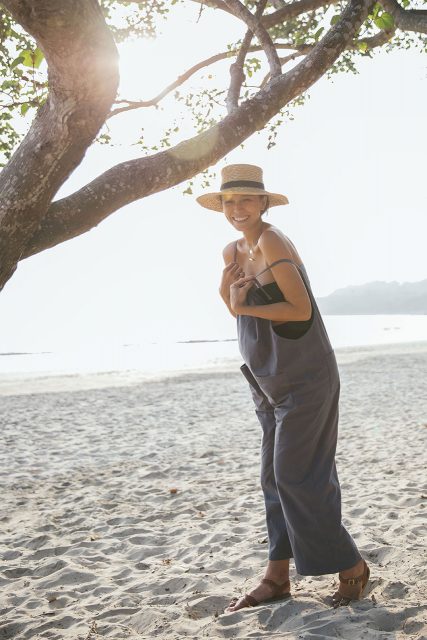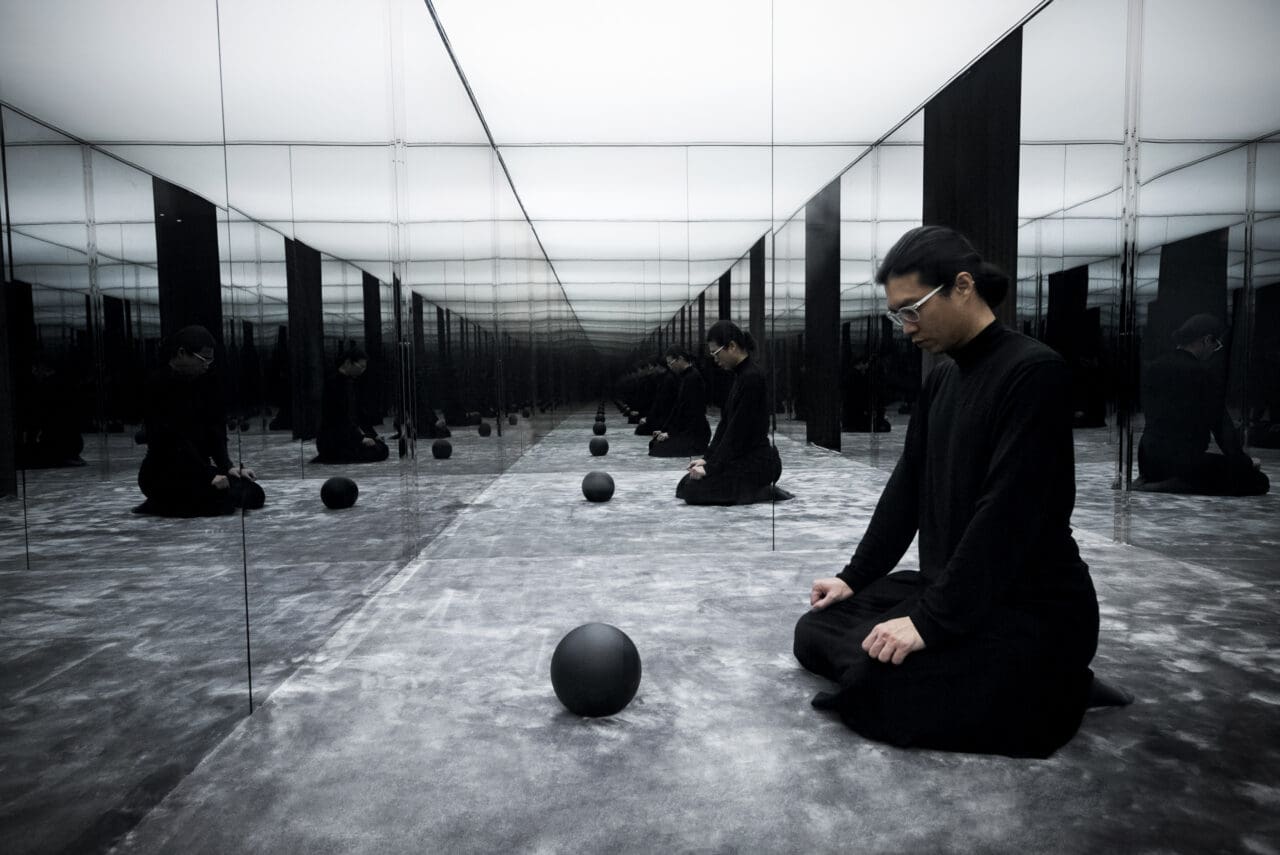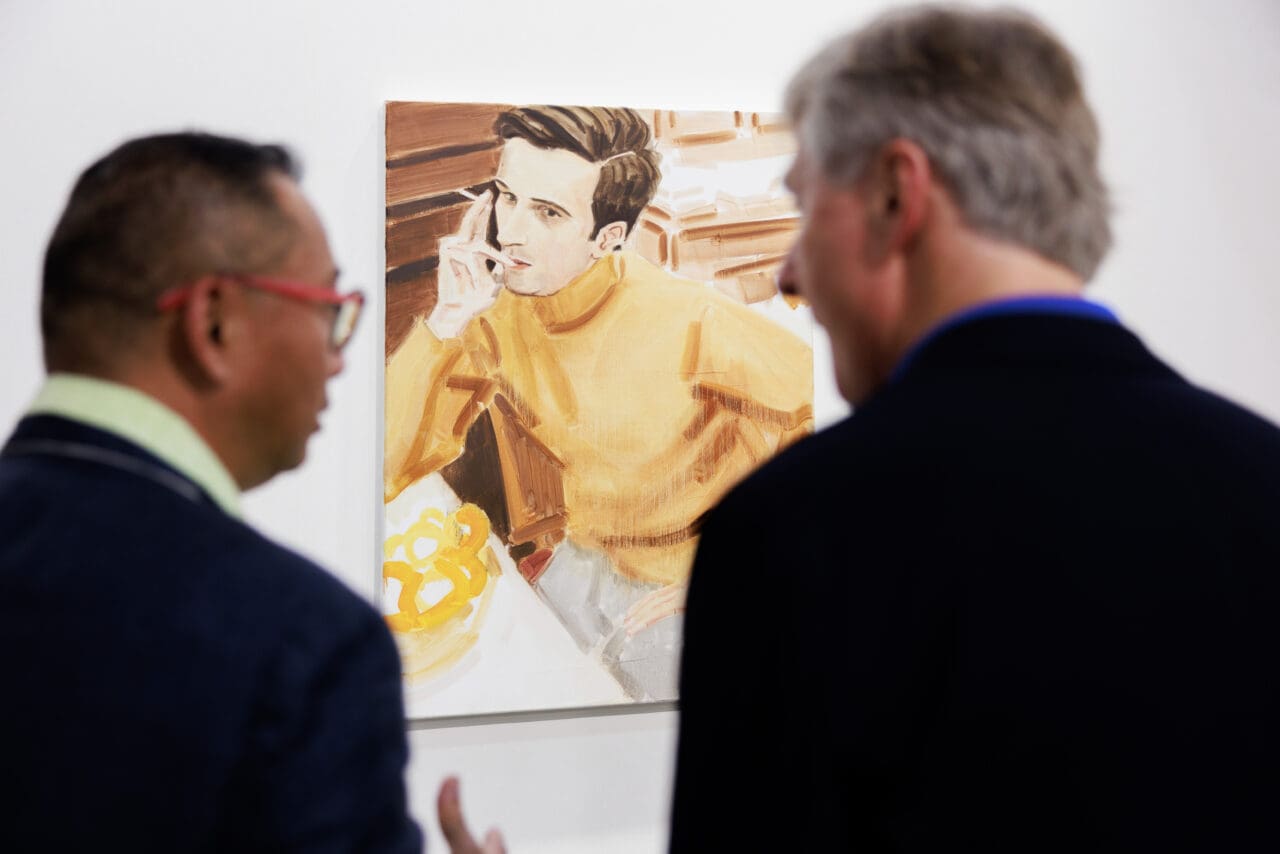Escaping to one of Hong Kong’s hundreds of islands is a fanciful idea often teased at in the minds of many of the city’s residents. The promise of fresh air, proximity to a secluded beach and a respectable amount of living space is certainly alluring, at least until more practical considerations – long ferry commutes, the lack of food options or convenience stores, slow internet speeds – begin to take root. Yet it wasn’t a daydream that compelled Cara G. McIlroy to uproot her cosmopolitan lifestyle and decamp to the countryside, but necessity, when a serious bout of lupus meant that a retreat to paradise became a matter of urgency.
“I needed a less hectic lifestyle,” says Cara. “I thought a change of scenery and being out of the chaotic energy of the city would help with getting rid of my illness.” As one of the most recognisable Eurasian models in Hong Kong, the 35-year-old Australian native had led an unrelenting lifestyle of photoshoots for the likes of Dior, Jimmy Choo and Shiseido, hosting TV shows and events, and running cold-pressed juice brand Genie Juicery (which she had co-founded with fellow Australian Melanie Barnish in 2011) up until that point. So began a worldwide search for the perfect sanctuary which took Cara and husband Jesper McIlroy house-hunting in Australia, upstate New York, Los Angeles and Bali. When nothing satisfied their requirements, however, they returned to Hong Kong and looked further afield, whereupon they found a newly-built three-storey house in a seaside village on Lantau Island that was finally able to capture their hearts.
A plant hangs in the sitting room
Photo: Mitchell Geng
It’s not hard to see why: on the sultry summer day that we visit, the view from the terrace is more akin to what you might chance upon a million miles away. The languid rhythms of life here mirror that of a sun-drenched Caribbean isle. On most days, Cara wakes up before sunrise and sleeps not long after sunset, and whenever the weather allows, she takes daughters India, 5, Freija, 3, newborn Noa and Irish wolfhound Roxy along a path that winds through paddy fields and ends at the beach, to spend the afternoon picnicking and building sand castles. “Sometimes we camp on the beach, and on some Friday nights we’ll have bonfires with other families,” says Cara.
In these halcyon surroundings, the McIlroy household has quite naturally taken on the appearance of a beach house. “I’m quite a clean freak, believe it or not. It’s difficult with children to remain that way, but I like a really minimal, slightly Scandinavian, slightly boho aesthetic.” The open-plan ground floor living space is flooded by natural light thanks to a wall of rolling glass patio doors that, when shaded by sheer curtains, lend the space a sense of tranquil levity. These open directly onto a garden that contains a curry tree and two papaya trees that the family had planted from seeds, and had only just bore their first fruit. “Before we got a fence, a buffalo used to come and sit right in the garden, and I would open the living room door in the morning and feed him apples,” Cara recounts. Not all the local wildlife is so friendly though: “There’s wild boar and goats, but I’ve seen a few snakes – king cobras, and the bamboo viper, which is Hong Kong’s most venomous snake!”
The view over Lantau from the rooftop
Photo: Mitchell Geng
Away from the anonymity of the city, the villagers – an eclectic mix of Russian, American, French, and Italian expats, as well as the odd triad family or two – have fostered a return to a close-knit form of community that is all but extinct in Hong Kong. “When you need butter, or eggs and milk, you just yell out to your neighbours. Everyone’s always helping each other and looking out for each other.” This way of living is a necessity as much as it is an attraction of village life, when there are no convenience stores or supermarkets within a 15-minute drive, and urban buzzwords like Uber and Deliveroo are but mere pipe dreams. But then again, Cara is, and always has been, a country girl at heart. “I think I’m done with cities to be honest. Although I love the convenience of living in a city – you can always get food, you can go see your friends, you don’t have to get a car – for me, fresh air, open space, and nature are such higher priorities for me.” At the end of the day, when the setting sun is glinting off the crests of the waves and bathing the beach in a luminous glow, and India and Freija are frolicking on the shoreline, she’s reminded for a moment of a part of her own idyllic childhood growing up on Australia’s Gold Coast. And that’s something she wouldn’t trade the world for.
Editor
Gavin Yeung









